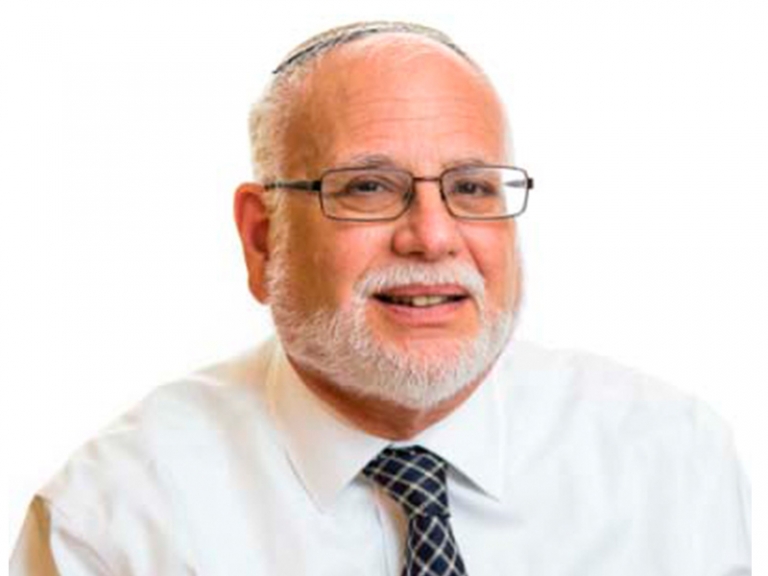D'var Torah by Dr. Kalman Stein, Head of School

Dear Hebrew Academy Community:
The Gemara in Massechet Shabbat (88a) offers a very puzzling interpretation of what at first glance seems to be a rather simple statement about Ma’amad Har Sinai. Moshe, we read (Shmot 19:17), brought the People out of the camp toward God, and “Vayityatzvu B’Tachtit HaHar’ which is almost universally translated as “They stood at the foot of the mountain.” The Gemara, however, reports, that the translation should be that they stood beneath the mountain. That is, “Kafah Aleihem et HaHar K’Gigit—God held the mountain over their heads like a barrel” and said to them “If you accept the Torah, that is good, but if you do not accept it “Shom Tehai Kivuratchem—There will be your grave.” Not at all like the story of Matan Torah which we have all known since early childhood. In fact, Rav Acha Bar Yakov immediately raises a legal objection: If the Jewish People accepted the Torah only under duress does that not supply a ready excuse for anyone who sins? After all we all know that a contract is binding only if entered into willingly. The Gemara solves the legal problem by reporting that, based on a verse in Megillat Esther, centuries later the Jewish People willingly accepted the Torah as binding on themselves and future generations—that’s us—in response to the miraculous salvation of Purim. But if the Gemara’s answer affirms our responsibility to obey the Torah it does not do much to make one feel inspired by our ancestors’ acceptance of the Torah as described in this week’s and next week’s Torah readings.
My friend and teacher Rabbi Dr. Jacob J. Schacter has a creative and satisfying interpretation of the Gemara which he bases on a Midrashic statement which connects the words “Vayityatzvu B’Tachtit HaHar--And they stood at the foot of the mountain” with a verse in Shir HaShirim (2:14): Yonati B’Chagvei HaSelah, B’Saiter HaMadraigah—My dove is in the clefts of the rocks, in the concealment of the terrace.” What the Midrash is telling us, explains Rabbi Schacter, is that HaKadosh Baruch Hu held the mountain over the heads of Klal Yisrael not as a threat but as a form of protection. I looked it up: The average June temperature in the virtually treeless Sinai is 99 degrees and even hotter in the mid-day sun. Hundreds of thousands of men, women and children standing in the sweltering heat with no shade to be found: So, as suggested in Shir HaShirim, the song of the love of the Jewish People and God, Hashem lifted the mountain over their heads and provided them with shade and protection as the miraculous events of the Revelation of Sinai were taking place.
And now we can better understand the unusual wording of “Shom Tehai Kivuratchem—There will be your grave.” It would have made more sense if Hashem had said Po (here) will be your grave: That is, if you accept the Torah that’s terrific but if you don’t I’m about to drop this mountain on you and this will be the site of your graves. But God was not threatening the Jewish People with the possibility of imminent death; He was issuing a warning for future generations. You are about to leave here safely and go on to Eretz Yisrael, Hashem told them, but someday your descendants will find themselves spread throughout the world. If at that time—whether they are in Morocco, Germany, Poland, Yerushalayim or Miami—they do not accept the Torah, do not do whatever needs to be done to observe and perpetuate Torah, Shom Tehai Kivuratchem, that is where you will cease to exist.
I would suggest the novel interpretation of another seemingly straightforward Pasuk in our Parasha might be the key to making sure that this does not happen to our community. God instructs Moshe to tell the people standing at the foot of the mountain Hishamru Lakhem Alot BaHar U-ne-go-ah B’Katzaihu; Kol hanogai’ah BaHar mot yamut –Be careful not to ascend the mountain or even touch its edge; anyone who touches the mountain will die (Shmot 19:12).” The Kotzker Rebbie, Rabbi Menachem Mendel Morgensztern of Kotzk, (1787–1859, commented that we should understand God’s instruction to mean that we not ascend the mountain of God and be content only with just touching the edge because a superficial religious life is no guarantee for long-term and substantive survival. Even we in our community whose lives are so tied to Judaism—Shabbat, Chagim, Tsedaka, Kashrut, and so much more—need to make sure that Torah is the core of our existence and that we are neither merely going through the motions of habitual religious observance nor observing Mitzvot without allowing Torah values to shape every aspect of our very being. It is only profound and consistent devotion to Torah, to Halakha and Torah values, that allows us to transmit authentic Judaism to our children and grandchildren.
Shabbat Shalom,
Dr. Kalman Stein
Head of School

